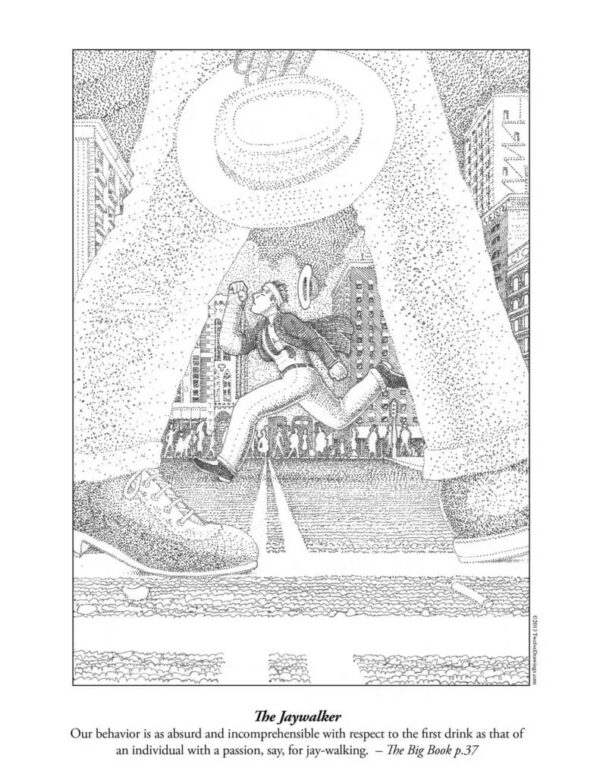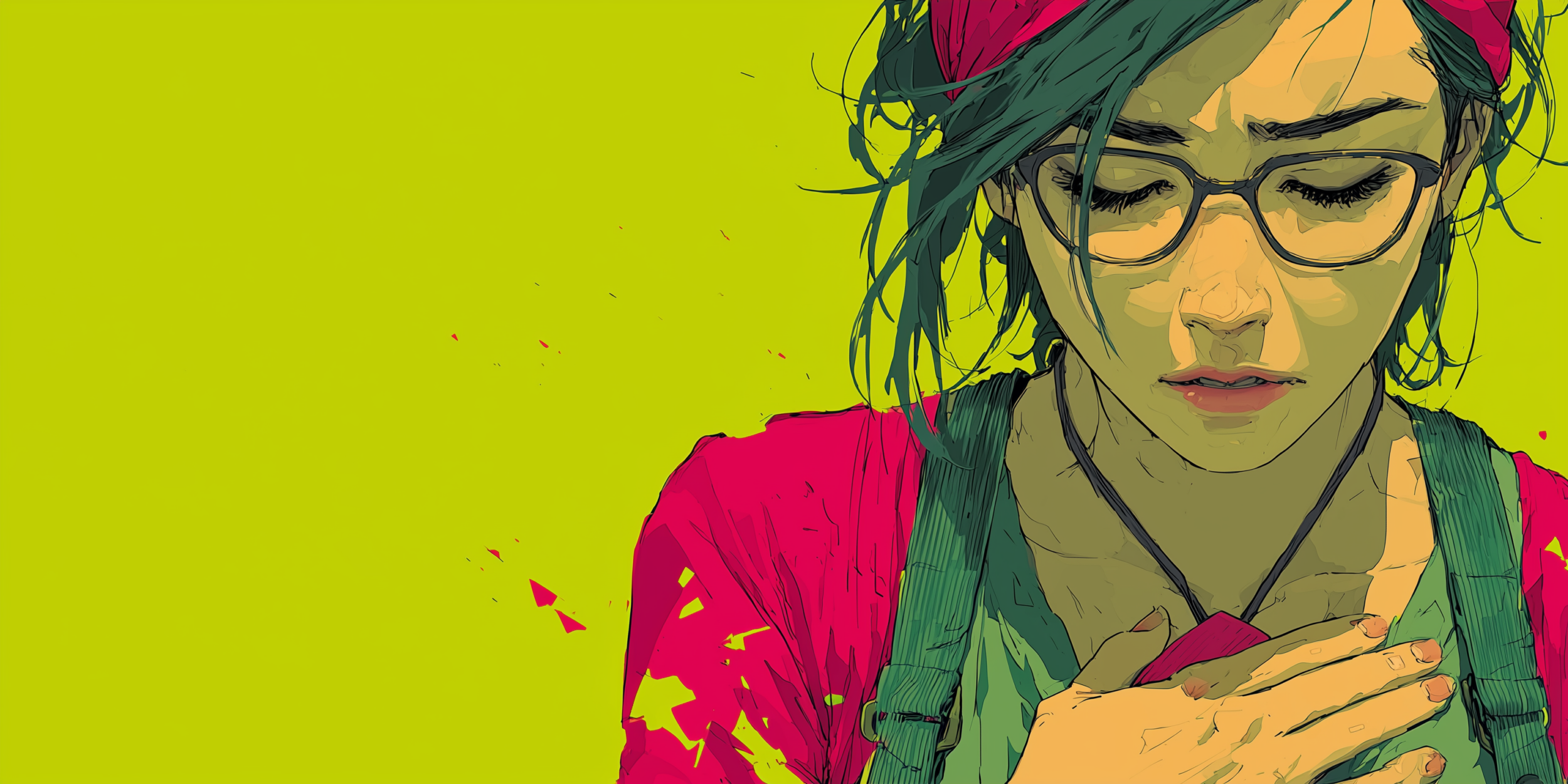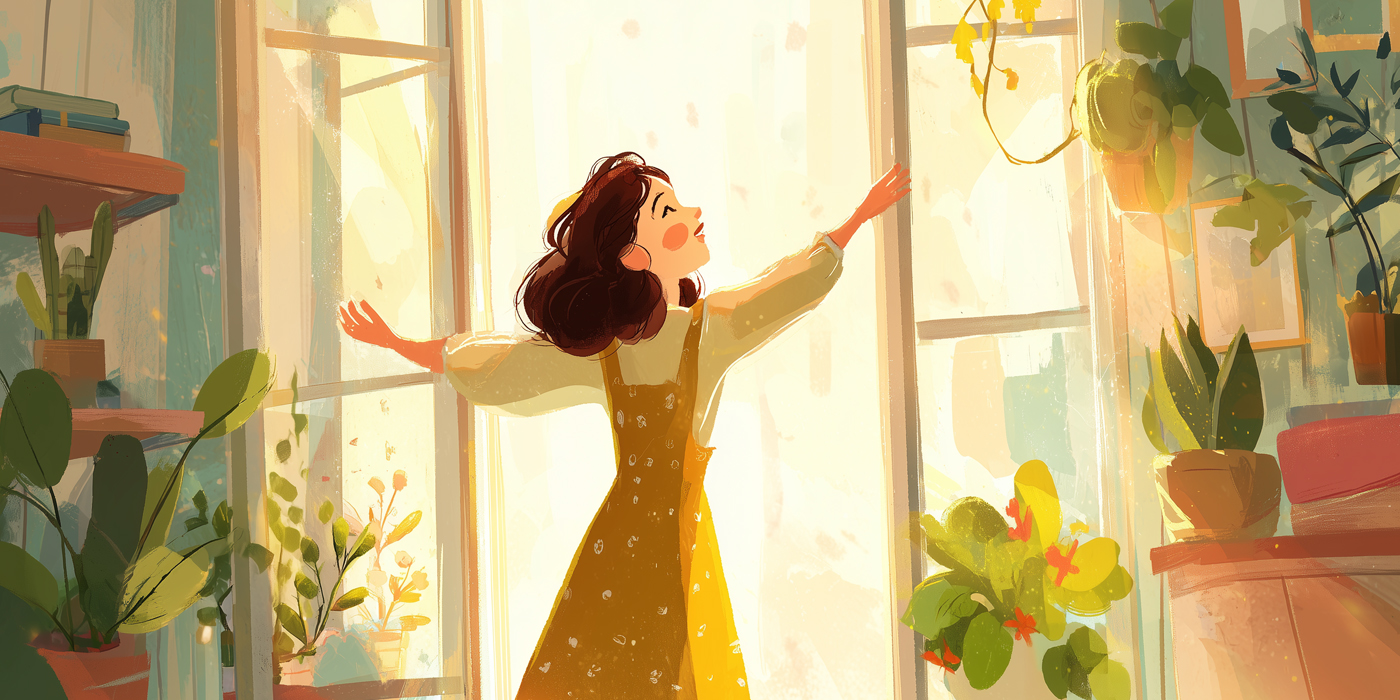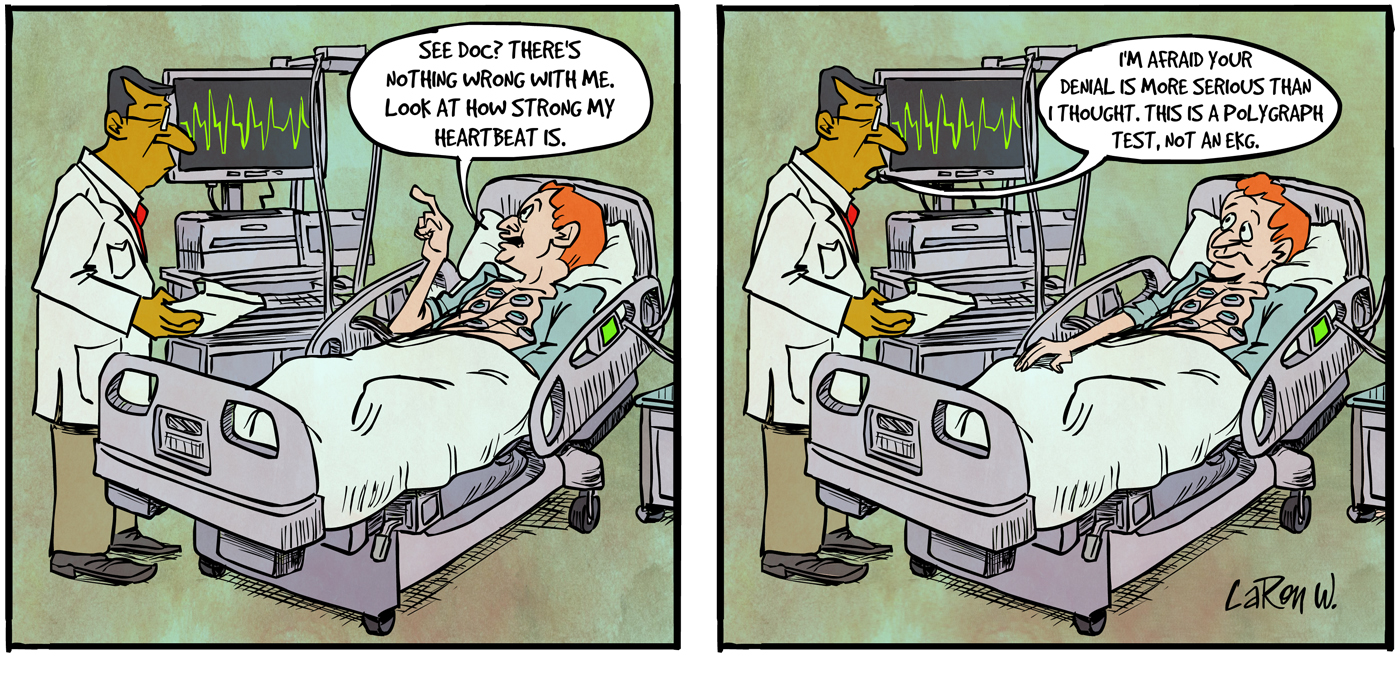“Our behavior is as absurd and incomprehensible with respect to the first drink as that of an individual with a passion, say, for jay-walking” (AA 37).
If a vote were taken, I think that the most beloved character in the Big Book might be the Jaywalker. That hunch is based on the grins, laughter, and head-nodding I see in my meetings whenever that character is mentioned.
The Jaywalker is sort of a tragic clown who takes delight in intentionally dashing out in front of fast-moving traffic. At first, he enjoys his dangerous habit, but over time he is plagued by increasingly frequent and serious injuries. One day, he vows he will stop but soon finds himself returning to the busy roadway, taking ever greater risks. After one too many mad dashes, he is finally knocked flat on the road with a broken back.
The Big Book says, “We, who have been through the wringer, have to admit if we substituted alcoholism for jay-walking, the illustration would fit us exactly” (AA 38). What “illustration” is Bill referring to? The Jaywalker—a tragic clown who took senseless risks until one day it caught up with him? Or the alcoholic who takes risks for no reason, which he had better stop taking before it is too late? That description sounds more like how non-drinkers view alcoholics: that alcoholics are tragic clowns who should simply mimic their non-drinking friends and their problems would correct themselves. That may be what non-drinkers believe, but the interpretation does not match any other part of the Big Book.
What other interpretation might there be? Consider that the story appears right after Bill defines the “insanity” of alcoholics as the “lack of proportion and ability to think straight” (AA 37). The Jaywalker certainly demonstrates this lack of proportion and ability to think straight. For a moment, let’s picture the Jaywalker as a real person. Maybe he just stepped out of a cigar shop and onto a busy sidewalk. He sees his barbershop directly across the street and realizes he needs a haircut. He wants to cross the street but he’s in the middle of the city block—far from the traffic lights located at either end of the block.
At those traffic lights, hundreds of thousands of people safely cross the street every hour, all waiting for the “Walk” signal. They feel no need to hurry, knowing the cars will stop when the light turns red. They safely cross this street by using ordinary crosswalks, walk signals, and traffic laws. Proportioned (sane) and straight (sane) thinking abounds around the Jaywalker.
But something is troubling the Jaywalker. He looks 100 yards up and down the block at these pedestrian crosswalks. He knows what they are for. But he doesn’t want to walk from the cigar shop all the way to the intersection, cross the street, then walk back to his barbershop. That seems crazy when a quick dash across the street will get him there within seconds.
The Jaywalker has two choices. One is to walk calmly and safely for five minutes. The other is to dash into the open road, heart pounding, narrowly eluding death—and arriving at the other side in a moment (while those dull-witted slowpokes at the crosswalk are still waiting for the light to change). He willingly risks his life to save five minutes of drudgery. And he will likely brag about this to his friends.
The Big Book definition of insanity—the lack of proportion, of the inability to think straight—now seems to fit the Jaywalker perfectly: I do not believe Bill was describing alcoholics as tragic clowns. I believe he was describing a type of person who is constitutionally incapable of doing things the ordinary “boring” way even when the ordinary way is easy and convenient. I believe he was saying that alcoholics lack the proportion and straight thinking to take the safe route—to choose the sensible solution that is easily within their grasp.
My drawing shows the Jaywalker making his typical mad dash across the open road, heedless of whether or not cars are coming. His body already bears scars from his recent close scrapes, but he is lured back to his habit by an insatiable desire to beat the system. His sense of superiority over the dull “trudgers” who cross safely at the distant intersections motivates him to defy ordinary rules, customs, and habits.
He is not a clown in my eyes. The Jaywalker is me. He reflects my tendency to take shortcuts, my secret desire to defy society’s rules, my aching need to feel better than everyone else, and my egotistical love of always being right. He is my lack of proportion. He is my inability to think straight.
I am the Jaywalker. Plain and simple. That is, until I ask God what He would have me be. Would He have me walk 100 yards, wait with the crowd at the intersection, cross with the “Walk” signal, then trudge the Road of Happy Destiny another 100 yards back to my barber shop? I think so. I believe so. And now, that’s what I do.

John I.






